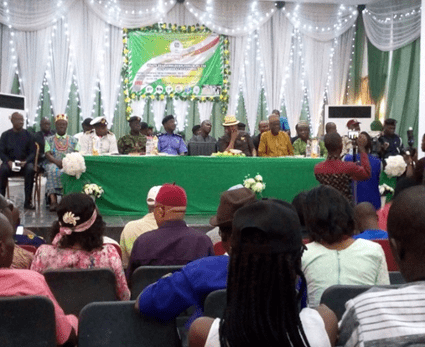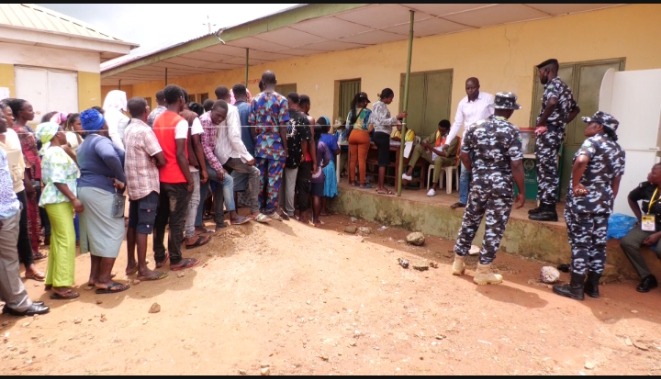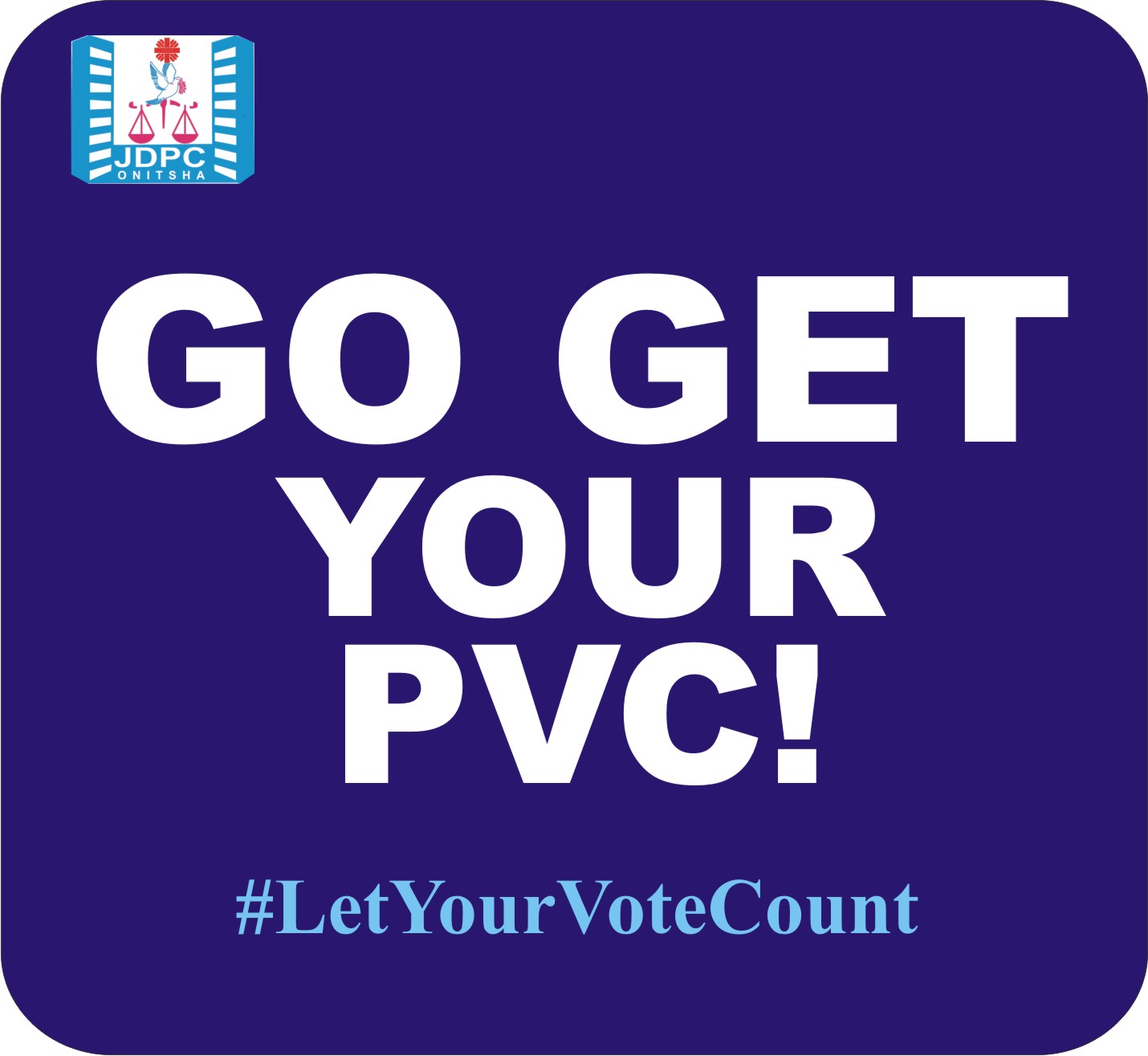Democracy is a government in which the supreme power is vested in the people and exercised by them directly or indirectly through a system of representation usually involving periodically held free elections. The five (5) basic concepts are
Democracy And Good Governance
Fundamental worth of every person, everyone is worthy of being part of democracy; equality of all persons: everyone has equal opportunity and legal equality, regardless of gender, religion, or race; Majority rule and Minority Rights; Necessity of compromise and Individual Freedom.
Democracy is important because it gives citizens equal opportunities to help make laws, vote for leaders and be protected by laws and rights that are in place. It focuses on the rights of the citizens rather than the rights that the government has to control the citizens. Good governance is an approach to government that is committed to creating a system founded in justice and peace that protects human rights and civil liberties. It requires that all groups, particularly those most vulnerable, have direct or representative access to the systems of governance.
The above understanding of democracy and good governance are not all obtainable in Anambra State. Our democratization and democratic processes are still bedeviled with lots of problems that include beneficial to a specialized few and their cronies, limited responsiveness and representation, weak opposition party, money politics, structural exclusion of women and youths. The causes of the above stated problems relate to ignorant understanding of democratic government by the electorates and elected, inability of citizens to exercise their rights and ask questions on issues pertaining good governance, lack of internal democracy amongst political parties, poor knowledge of the electoral and democratic process and limited capacity for advocacy. In as much as the problem affects all the citizens of the state, the people mostly affected are the poor, the marginalized and the vulnerable especially females, youths and children.


It has been observed that among all the parties in the state, there is no internal democracy. Imposition of unqualified candidates is often the order of the day. This scenario leads to rigging, thuggery and other manipulations and illegalities associated with elections, including unnecessary appointment of large number of aides.
During elections politicians are active in political engagement – electioneering and campaign. After election they become unreachable, thus this brings about poor representation and lack of provision of democracy dividend – poor infrastructure such as bad roads, unreliable power supply, poor health facilities, etc.
The hegemonic politics of powerful groups such as businessmen/Contractors and Religious leaders have become the main factors driving the politics of the state.
The above political upheavals resulted to a great voter apathy in the State. During elections, most voters prefer to stay indoors, others demand and receive N1000 to N2000 each in other to vote for a candidate. In previous elections, the National Orientation Agency and federal ministry of information launched various campaigns against this. The government also put laws in place to discourage this, but without success. This leads unpopular candidates with money and those with billionaire God fathers to win elections in the State.
JDPC Onitsha in association with several other donors like CRS, USAID, UK AID, SAVI, CPC, and Development In Practice (DiP), Caritas Nigeria, JDPC Awka and JDPC Nnewi, through V2P project and other projects sensitized the voting public in the State on the need to vote and not sell their votes. They also monitored the elections in the state as official observers which was a success.
Key Actions
- Engage in civic and right education of citizens.
- Create awareness/sensitization on citizens’ inclusive participation especially the marginalized groups.
- Build citizens capacity on monitoring and evaluation of government projects in communities.
- Collaborate and network with state actors and community members on right–based approaches to state- citizen interactions/engagement.
- Targeted advocacy to relevant stakeholders to effect change.
You should also read these
-
REPORT OF 2023 GENERAL ELECTION, HELD ON 25th FEBRUARY 2023 AS OBSERVED BY JUSTICE DEVELOPMENT AND PEACE/ CARITAS (JDPC) ANAMBRA STATE
REPORT OF 2023 GENERAL ELECTION, HELD ON 25th FEBRUARY 2023 AS OBSERVED BY JUSTICE DEVELOPMENT AND PEACE/ CARITAS (JDPC) ANAMBRA STATE Introduction Justice Development and Peace/Caritas Anambra State are faith […]
READ MORE
Trending
- JDPC Onitsha Rewards Mr. Chidi Debe Nkobie for Exceptional Voluntary Work
- JDPC MARKED UN INTERNATIONAL WOMEN’S DAY 2024 AT ST. GREGORY IYIOWA ODEKPE
- JDPC ONITSHA MARKED UN INTERNATIONAL DAY OF PERSONS WITH DISABILIIES.
- International Day for Violence against women and girls at Sacred Heart Parish , Umusiome, St. Alphonsus Nkpor Uno.
- WORLD HUMANITARIAN / CHARITY DAY AT SPECIAL SECONDARY AND PRIMARY SCHOOL OF DEAF ODOAKPU ONITSHA
People are talking about this
JDPC ONITSHA
Justice Peace Development / Caritas. making impactful actions in our society and creating direct access to core development, justice for all and improving the livelihood of the poor.
Contact Us
Visit us at: Basilica of the Most Holy Trinity Ontsha, Anambra State, Nigeria.
Call us on: +234 909 605 7190
Email: [email protected]
CONTACT US
ADDRESS:
Basilica of the Most Holy Trinity Ontsha, Anambra State, Nigeria.
PHONES: +234 909 605 7190, +234 817 460 8607
MAIL: [email protected]
How to Donate to JDPC
JDPC (Justice Peace Development Commission) is a Vivamus volutpat eros pulvinar velit laoreet, sit amet egestas erat dignissim. Sed quis rutrum.
DONATE NOW
© Copyright 2020 JDPC Onitsha ❤️ Web Nigeria




Leave a Reply
You must be logged in to post a comment.